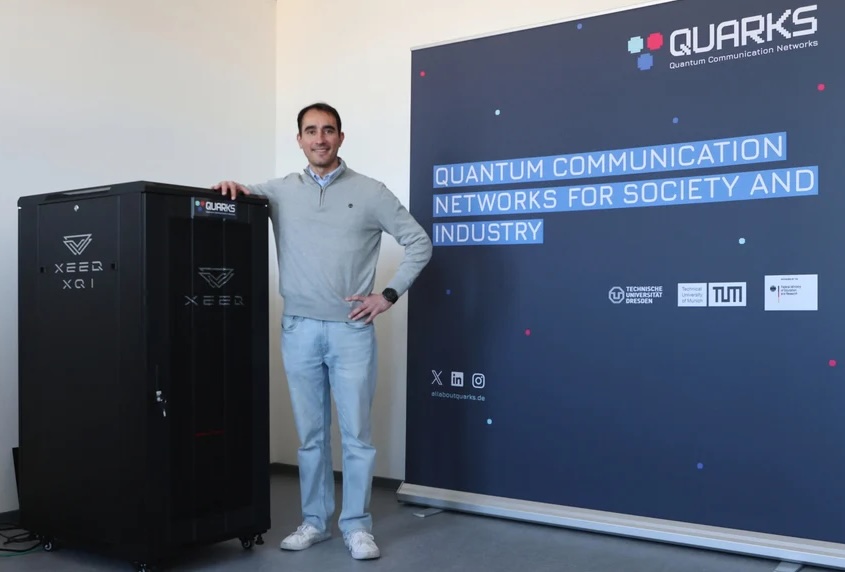Dresden is making history! The city is set to become the birthplace of the world’s first 6G network powered by quantum technology. Researchers at TU Dresden, in collaboration with TU Munich, are exploring the immense potential of combining AI with quantum computing to revolutionize data processing. At the heart of this innovation is the "Quarks" research group, led by Professor Riccardo Bassoli. Unlike traditional computers, quantum computers can explore multiple computational pathways simultaneously, much like a Rubik’s Cube expert instantly recognizing the optimal moves. Contrary to popular belief, these futuristic machines are compact and efficient.
Federal Investment in Quantum Communication
The German Federal Ministry of Education and Research (BMBF) is investing over 4.47 million euros into the QUARKS project (QUAntenkommunikation netzweRke Kompetenz für die gesellSchaft). Spearheaded by Prof. Frank Fitzek, this initiative will develop quantum communication networks while actively engaging society, industry professionals, and students in this cutting-edge field. Key partners include Prof. Holger Boche from TU Munich, Prof. Riccardo Bassoli from TU Dresden, and Dr. Gopi Balasubramanian, whose startup XeedQ is driving the commercialization of quantum processors.
Bringing Quantum Technology to the Public
QUARKS is dedicated to making quantum communication accessible through:
- Hands-on experiments with qubits and quantum superposition
- Industry innovation days and hybrid school models
- Public engagement initiatives to demystify quantum technology
According to TUD Rector Prof. Ursula Staudinger, "Digital sovereignty and a well-qualified workforce are crucial for Germany’s competitiveness. QUARKS will provide valuable insights into the future of communication."
Quantum resources promise not only enhanced security and reduced latency in interactions with AI and robotics but also significant energy efficiency improvements. As Prof. Fitzek highlights, "No other project focuses so intensely on engaging diverse groups in designing future communication networks through quantum technology."
The Future of Quantum Communication
With collaborations spanning academia, industry, and education, QUARKS aims to tackle the skills shortage in quantum technology by fostering talent in Dresden and Munich. The initiative aligns with Germany’s broader Quantum Active program, which seeks to engage the public and encourage participation in groundbreaking scientific advancements.
Dresden is leading the charge into a new technological era, setting the stage for a smarter, faster, and more secure digital future.
For more information:
Lisa Marie Küssel
Phone: +49 351 463-40402
Mobile: +49 151 20042637
Email: lisa_marie.kuessel@tu-dresden.de
